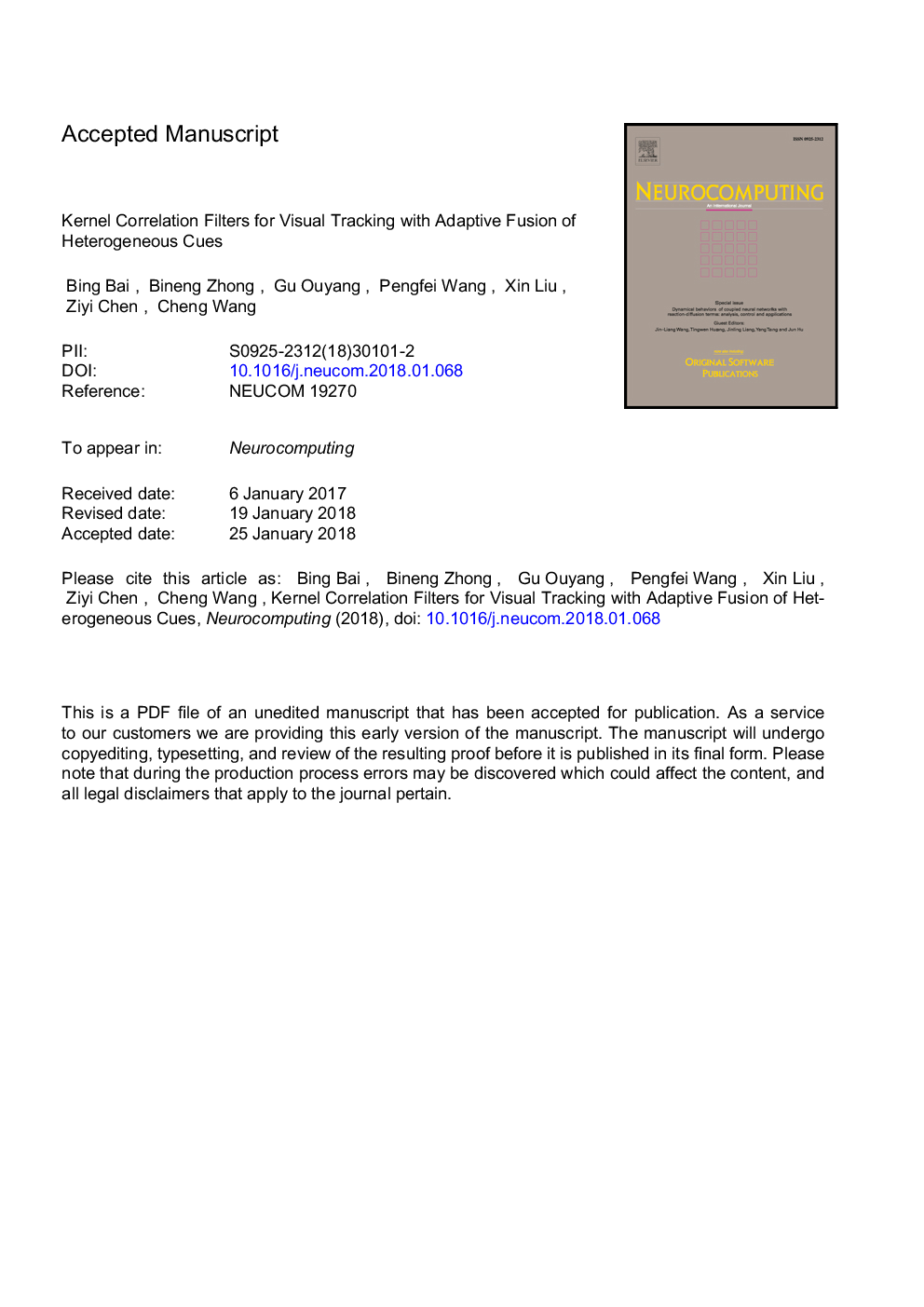| Article ID | Journal | Published Year | Pages | File Type |
|---|---|---|---|---|
| 6864406 | Neurocomputing | 2018 | 29 Pages |
Abstract
Although the correlation filter-based trackers have achieved competitive results both on accuracy and robustness, the performance of trackers can still be improved because the most existing trackers either use a fixed scale or a sole filtering template to represent a target object. In this paper, to effectively handle the scale variation and the drifting problem, we propose a correlation filter-based tracker by adaptively fusing the heterogeneous cues. Firstly, to tackle the problems of the fixed template size, the scale of a target object is estimated from a set of possible scales. Secondly, an adaptive set of filtering templates is learned to alleviate the drifting problem by carefully selecting object candidates in different situations to jointly capture the target appearance variations. Finally, a variety of simple yet effective features (e.g., the HOG and color name features) are effectively integrated into the learning process of filters to further improve the discriminative power of the filters. Consequently, the proposed correlation filter-based tracker can simultaneous utilizes different types of cues to effectively estimate the target's location and scale while alleviating the drifting problem. We have done extensive experiments on the CVPR2013 tracking benchmark dataset with 50 challenging sequences. The proposed tracker successfully tracked the targets in about 90% videos and outperformed the state-of-the-art trackers.
Keywords
Related Topics
Physical Sciences and Engineering
Computer Science
Artificial Intelligence
Authors
Bai Bing, Zhong Bineng, Ouyang Gu, Wang Pengfei, Liu Xin, Chen Ziyi, Wang Cheng,
